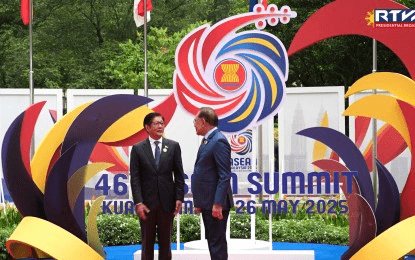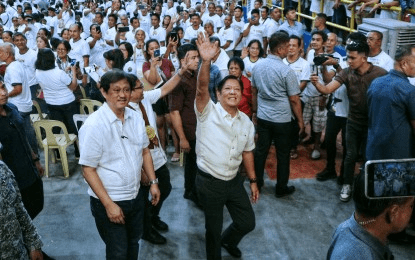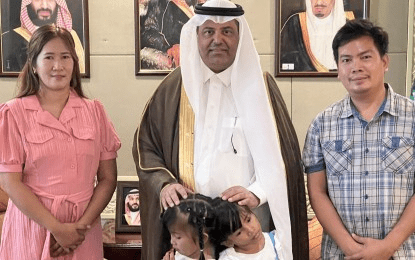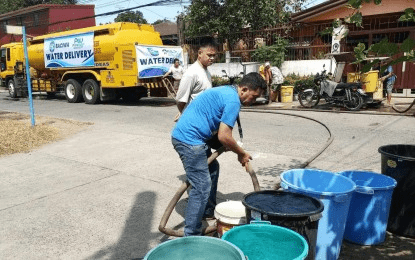By Darryl John Esguerra

MANILA – President Ferdinand R. Marcos Jr. on Monday called on the Association of Southeast Asian Nations (ASEAN) leaders to accelerate the adoption of a legally binding Code of Conduct (COC) in the South China Sea, as tensions continue to rise in the region.
Speaking during the 46th ASEAN Summit in Kuala Lumpur, Malaysia, Marcos said the COC is essential to “safeguard maritime rights, promote stability, and prevent miscalculations at sea.”
“We underscore the urgent need to accelerate the adoption of a legally binding Code of Conduct in the South China Sea,” Marcos said in his intervention, reiterating the Philippines’ call for a rules-based order amid increasing geopolitical tensions.
The call comes as confrontations between China and Southeast Asian countries, particularly the Philippines and Vietnam, have intensified in disputed waters.
Just last week, two Bureau of Fisheries and Aquatic Resources (BFAR) vessels sustained damage after China Coast Guard (CCG) ships sideswiped and water cannoned them while conducting marine scientific research missions in Pag-asa Cay 2 (Sandy Cay).
The territory is located just west of Pag-asa Island in the Kalayaan Island Group. China refers to the area as Tiexian Jiao and continues to claim it as part of its territory despite international rulings rejecting its expansive maritime claims.
The long-delayed Code of Conduct, intended to establish rules and prevent conflict in the contested waters, has been under negotiation for over two decades between ASEAN and China.
Marcos emphasized that ensuring regional peace, security, and stability must remain central to ASEAN’s vision moving forward.
“In line with the ASEAN Community Vision 2045, the Philippines will continue to work so that ASEAN should be secure, peaceful, and stable, governed by the rule of law, prosperous and innovative,” he said.
He also addressed the broader challenges facing the region, such as climate change, economic volatility, and transnational crimes, while stressing the need for stronger cooperation and institutional resilience.
“As one of the most climate-vulnerable regions globally, nearly half of the entire ASEAN population faces significant climate-related risks,” Marcos said.
He urged ASEAN partners to scale up climate financing and called for “scientific and evidence-based, investment-led, and transformative solutions to the climate crisis.”
Reaffirming the Philippines’ commitment to ASEAN goals, Marcos said inclusive development and investment in people are at the core of the country’s national strategies.
“Each of us must contribute to win the future that we envision for our community,” he said, adding that ASEAN workers must be “equipped with the skills, protections, and opportunities that they need to thrive.”
The President also welcomed ASEAN’s consensus to avoid retaliatory economic measures and lauded Malaysia’s leadership in the ongoing dialogue to preserve regional trade stability.
“As we support Malaysia’s ASEAN Chairship in 2025, we stand ready to build on our shared achievements and sustain momentum until 2026,” Marcos said.
Manila will host the regional meet next year. (PNA)




